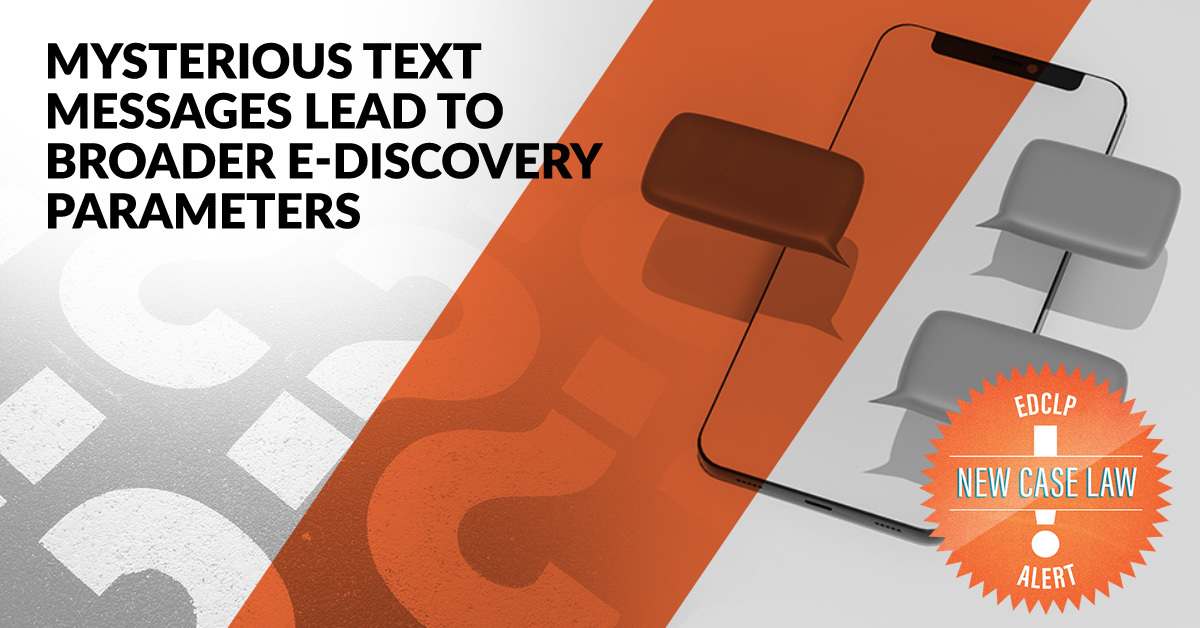E-Discovery
Case Law Alert: Mysterious Text Messages Leads to Broader E-Discovery Parameters
November 4, 2022

E-Discovery is an iterative process. In Advanced Magnesium Alloys Corp. v. Dery (S.D. Ind. Aug. 5, 2022), the court re-affirmed that notion, ruling that search terms should evolve as the parties learn more about their case, including local jargon used in communications between custodians privy to the lawsuit.
Overview
In this case about two businesses illegally conspiring to secure a third-party investment, the plaintiff requested that one of the defendants produce all text messages between two executives during a one-month period to provide context around already produced text messages.
During e-discovery, the plaintiffs requested that one of the defendants produce text messages surrounding an alleged meeting between defendants, as the prior production included messages with mysterious language that may have alluded to the alleged meeting.
In depositions, the defendants said they couldn’t recall using this mysterious language or if this meeting ever occurred. The defendants argued that this was a fishing expedition and that they were never involved in such a meeting.
Based on this ambiguity, the plaintiff moved to compel production of all text messages within a one-month period during the time when the meeting may have occurred.
Ruling
- Denied and Grant in Part. The court rejected the plaintiffs’ request due to it being too broad but did require the defendants to review all text messages from the requested one-month period and produce any relevant messages found. The court ordered that the defendants’ attorney file a certification that all text messages were reviewed.
- Keywords in Search. The judge explained that additional keywords may need to be added to discovery parameters as local jargon is discovered within the parties’ communications. The court ordered the defendants to produce any messages relating to that alleged meeting, or if the plaintiff crafted a narrowly tailored production request, the defendants would need to comply.

Expert Analysis from David Cohen, Partner and Chair of the E-Discovery Group, ReedSmith
This case illustrates that courts will not support a “gamesmanship” approach to discovery. A party cannot shield information from discovery by using aliases (or code words) in communications, failing to reveal the aliases during search term negotiations, and then refusing to produce documents that did not hit the search terms.
Case Law Tip
Want to learn more about recent e-discovery sanctions? Download the Exterro whitepaper, Don't Get Sanctioned Like These Parties!
